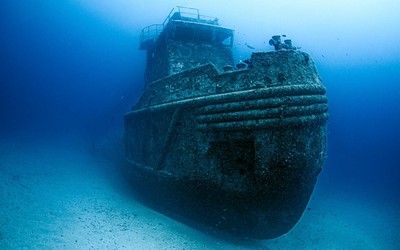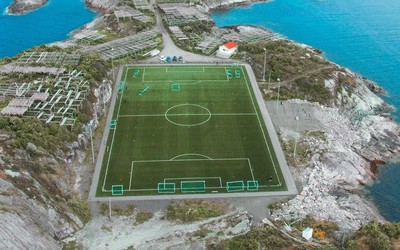
the ultimate travel guide for your Lichess tournaments! - 1. Tips about marathon
a marathon has ended, a new one will arrive, every hour you have arenas and tournaments by the thousands, but how do you prepare for it? dear readers, the desire to write a blog about tournaments took hold of me and given my journey, don't be surprised. already a small remark, I am NOT a titled player, I am an amateur. so you are free not to like my blogs and to consider that there may be better elsewhere. just look at the Lichess blogs home page, there are people more knowledgeable than me. but my status as an amateur will perhaps be closer to what you can feel on the chessboard before and during a tournament and that humbly, my advice could be useful to you so that you can progress and understand things written by people more competent than me.* this blog is valid for future marathons, this blog is an improved and more thoughtful version of one of my blogs written a few days after the August marathon. as this marathon was my first and so far only attempt to play 24 hours, I will talk about my feelings and various things https://lichess.org/@/CSKA_Moscou/blog/my-marathon-or-how-i-played-24h-of-chess-/T0bQPHwk
Some words about my experience in tournaments
let's start. first believe me, I have tournament experience on Lichess, I started where anyone starts, in the arenas for players at 1300, 1500, 1700. I have no talent in chess, if I have progressed, it is thanks to my curiosity and my growing interest in the game which has transformed into motivation. I must have discovered the tournaments by chance, just the word tournament seemed prestigious to me because I was so insignificant in terms of my quality of play. I loved playing the tournaments and I still continue.
short explanation about Lichess tournaments.
on Lichess you have 3 types of tournaments: "individual" arenas are arenas that are available in ALL time controls and variants and are continuously organized on Lichess (every half hour, every hour, daily, monthly). there are certain special arenas like Shields and marathons where there are trophies for the winner (temporary trophy given to the winner of the tournament for the Shield) (definitive and given to the top 500 for the marathon). then there are the Swiss tournaments, which are close to the Over the board tournaments and which do not count in the tournament points which only concerns the arenas. finally the team battle arenas are arenas but where you must join a team for the entire duration of the tournament, your points will count in the score of the entire team if you enter the "team leader of the tournament", generally the 10-15 first places (with crowns shown on the left) which are in each team.
To know everything about Lichess tournaments, I recommend the official Lichess explanation link here https://lichess.org/tournament/help

The marathon, the Big one !
I will first address the subject of big individual tournaments and in particular the marathon, we had one recently, in 3+2.
some may notice the globe at the top of my profile, - btw that's the reason I named my blog "travel" - I really played a full marathon, at least up to my limits , for this, I wrote a little blog which you will have the link at the end of it. For such tournaments having an exceptionally long duration, you should make it a point to be ready several days in advance. If you want to perform, forget about chance and beginner's luck. There is nothing but risk in such tournaments, so mental preparation is a very important first step.
Preparation
1. Meditation and routines
for good mental preparation, I recommend that you first put aside emotions, some will say that meditation is useful, others have their own little routines, nothing is perfect or bad, it must be good for you. The benefit of meditation is stillness of the body and increased focus on the surroundings. use this in chess - before a tournament, sit on your chair or sofa dynamically (so as not to fall asleep or be in an uncomfortable position, that would be a shame for the process!) stay still and silent, and during few minutes don't think about chess, think of good and encouraging things that can inspire you for your performance but without ever feeling jealousy or denigration for the thing you are thinking about. think for example of the best victory of your favorite sports team, think of those who helped you improve, think of your best successful works and when you feel very good, then make a mental transition to chess, remember important games and where you have worked to improve your game, reflect and criticize your qualities and faults in a calm manner. it is not obligatory to have your eyes closed, (I do this with my eyes open and I don't call it a meditation but a pre-match routine, but apparently it looks like this basically). then shake off and get out of thinking, say 2-3 motivating words and let's go!
My tip :
do this a few minutes before the start of the tournament, it will be more useful. Before the marathon, don't worry so much about this sort of thing, just be aware that you have a big marathon in a few days, and set yourself a goal - usually top 500 or whatever comes with the trophy.
2. The marathon. Paradox of an Hell for your body and mental, but maybe a Dream for you.
you must nevertheless face the facts, you will suffer. playing an entire marathon is difficult for your eyes in front of the screen, for your brain which must remain focused on the same subject (in this case chess) which restricts many things for your brain, but with the paradox that the brain must be able, thanks to your memorization and learning, to find and analyze potential solutions, with each move! your arms and legs will suffer from long, intense immobility and your hand may cramp from holding the mouse, iPhone or tablet. on top of that, if you plan to have maximum luck, it's better not to sleep! This sounds nightmarish, sorry for you.
but you can improve this suffering, with breaks and other snacks, we will talk about it later. so prevention is better than cure and if you are ready to accept this fate, it is because you are motivated, and as I always say, motivation is a force!
3. Your motivation is to win a trophy, rigth ?
in fact your motivation is extrinsic. because you actually want the trophy, but sometimes you also have the curiosity of what it's like to play 24 hours. This is what makes the Lichess marathon different from running a marathon in life. In a marathon, the most important thing is to participate and try to finish. in fact the winner is not important except for his prestige and his statistics. you only have to note that the most motivated candidates, not always professional, manage to be happy "just" for having run kilometers for hours, because a marathon is not every day, it is exceptional and ultimately the trophy does not count for much. on Lichess there is this trophy, a sort of reward for hotheads and other chess enthusiasts who managed to finish in the top500. question of ethics, I notice that unfortunately the trophy has often become more important than the participation itself, perhaps because this trophy is definitive
During the marathon
as I said directly, in my August marathon blog, you have to be happy, after all you will suffer to be able to have a "good" time. you're going to play chess and you don't know everything cool that could happen to you, like beating a successful player or having an impressive win streak!
The first hours
That's it, it's started, but how can you not be distracted? when do I take my breaks? the first hours of the marathon are, in my humble opinion, the most important. It is in the starting peloton that we see who stands out from the crowd and goes ahead. you must therefore apply yourself and as usual in marathons, do not take too many risks on the chessboard: there is no point in playing an opening that you do not know well, prefer safe tactics rather than a sacrifice that is visually beautiful but is perhaps doubtful... * my tip: Berserk back or Berserk if you are sure of your abilities and your speed, if there is an increment the risk is much greater because there is the imbalance of time which is still most important . concentrate as much as possible and avoid taking breaks of more than 10 minutes during the first two-three hours, catch the right train first! once you are stabilized where you want to be in the ranking, all you have to do is hold out for as long as possible to avoid being overtaken. don't be overmotivated, excess confidence in such a moment or too intense joy can have very negative effects on the rest of the tournament. the opposite is also true and undoubtedly more present than the first example: if you don't make it into the top500 right away, some people may panic and become quickly demotivated while there is still 70% of the tournament to play.
rush hours.
I would say that the biggest part of the marathon after the first 3 hours and before the last three (so lasting 18 hours!) is the most difficult, especially if you do a late joining, because there are players from all over the world who don't have not the same time zones that can work against you. and this is not trivial. a player from the Berlin time zone will have started the marathon at night and will therefore be more tired and less focused in the afternoon, a player from the Indian time zone will have started the marathon during the day or at least in the morning and may need to rest later. I will talk about sleep later.
If I talk about time zones, it's because it's during the middle and end of the marathon that attendance is at its peak. If you have already played from the beginning, you are already tired. you cannot be 100% focused. try to play games without repentance for your mistakes or joy for your victories. put empathy aside. To reduce damage you need to take breaks. but how many breaks? and what to do during breaks?
Breaks
be strategic in your choices. no need to try to play without pauses or to stagger your pauses. the “maybe later” must be banned from your habits. check the time regularly. here's how I did it: the first 6 hours without big breaks, just breaks to hydrate. afterwards, take 20 min breaks every two hours once you have “hit the right train”. I recommend 20min because it is neither short nor long, in 20 min you can give your eyes a little rest and you can eat a little
for food, the choice is yours. I nevertheless strongly recommend that you avoid fatty foods cooked in oil, fast food, or your favorite dishes because you risk having a feeling of pleasure and comfort and you should not have that! healthy is the way! Here are some tips for everyone: eat things like dried fruits, fresh or cooked vegetables and fruits. of course bread or something. eat reasonably sweet: dark chocolate, flavored or not. no cake! as said above, fruits are a very good alternative! avoid ready-made meals, they are nutritional nightmares!
In short, be reasonable and eat healthy.
oh I forgot. the drinks ! exception, as you have to stay attentive for a long time, drinks like tea and coffee are more than recommended for those who can consume them! nevertheless drink lots of water!
the last hours.
during the August marathon, I must say that I wasn't very glorious after almost twenty hours of play, my eyes took quite a beating! your brain thinks less and is much less attentive. you won't be able to avoid missing tactics or other things, it's impossible. Around the last 4 hours I was like a zombie, I was playing because I knew I could do it, but at one point my body told me to stop. I therefore took a 30-40 min break, which was risky because I heard in the chat that 150 more points were necessary to consolidate the top 500 (editor's note I had around 560 points and the hypothesis was of 700 points, I managed to finish 206th with 609 points with almost 800 games). I also had a gigantic streak of defeat, something of which I will never be ashamed, because losing or winning does not have a very great sentimental significance in such events, only an accounting significance. the difficult thing was the players in late joining, often higher ranked than me who are aware of their strengths and who therefore join later in the hope of having big victory streaks to move up quickly (risky bet but which very often works ). it's funny the paradox between me who has played since the beginning of the tournament to try what it feels like to play 24 hours and finally have a trophy, and someone who is not very tired but who manages to move up the ranking in a few hours. This also deserves my respect because contrary to popular opinion, it's not easy to try to build up a lead in a few hours (I've tried that before). but in my opinion, there is a loss of what I call "the marathon spirit" which is a mixture of endurance and long competition.
I didn't manage to play the last hour. after my big break, I had a "last stand" on the chessboard, my body finally made me understand that I had to stop playing. so I played almost the entire marathon. I spent the last hour talking in the chat, it relaxed me a little, at least I was sure that I wouldn't fall out of the top500.

conclusion
I would say that my outward joy was a little subdued because I learned to be even more humble. nevertheless it was a joy in my heart because I had made many attempts before for this trophy, I worked for a good part of July training to the maximum and my mind was already thinking about this marathon since April -may. What to do now ? I was neither ready nor sufficiently trained for the October blitz. I have therefore not attempted the 24 hours, so I have other challenges awaiting me, objectives, and above all one objective which holds me: to share my knowledge. and try to advance those who want because I know what it is. I'm not a professional, nor a titled. I'm an amateur. I worked, I became motivated, curious and finally I became more humble. I got there, I barely knew this game, I was at 1100-1200. 3 years later I am at 2100. almost 1000 points difference. now I am certain that anyone can do it, so dare and try!
project box and thanks
I don't have a lot of time to write, plus it's difficult to write blogs on the phone.
I deactivate the blog forums by pure personal choice, because I consider that an article or a blog is the same thing and because I encourage you to think for yourself, with your critical mind, whether you find my work interesting or not.
Most of the time I find my blog images on pexels.com, I consider chess and sport in general a bit like a journey. I want to try images that are more poetic and evocative of travel, I think that this type of thing has a more motivating power than an image of a chessboard.
I will try a blog about team tournaments and leagues soon. and above all a short novel on chess that I am going to publish as a blog
listen.
Thank you and have a good journey towards the unknown horizons of your abilities and your strengths, dear readers!

More blog posts by CSKA_Moscou

how to escape the infernal spiral of rating and addiction to fast random games
Yeah, worrying about a number is destructive. sooner or later you will behave like Gollum. But you c…
My advices to Improve your 'Vista' (Vision) in chess !
what do Pelé, Beckham, Beckenbauer, Iniesta have in common with Carlsen, Tal, Liren, Anand? in addit…
History of chess in cafés
hello everyone, this time I wanted to do a historical blog on an important subject in the history of…
